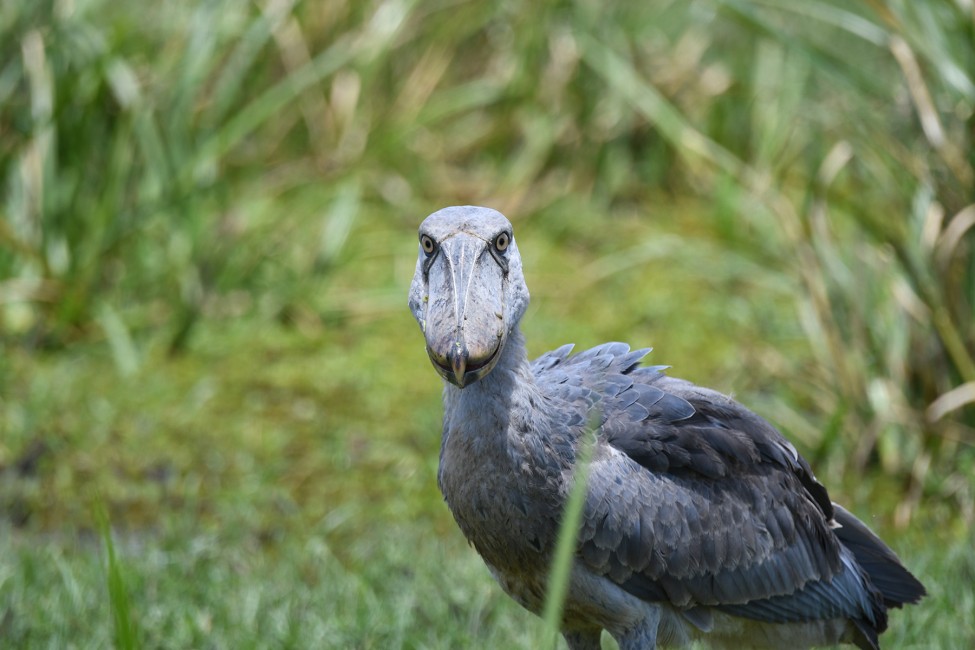

Satellite connectivity can be offered virtually anywhere in the world. Apple analyst Ming-Chi Kuo in a post, said that Apple has completed hardware tests for satellite connectivity and whether the feature will be available on the iPhone 14 or not will depend on whether the Cupertino giant can reach an agreement with telcos.Īccording to business insider unlike traditional services like 4G and 5G that use towers, satellite connectivity is offered through low-earth orbit or geostationary satellites in space. We may soon see satellite connectivity support for iPhones as well.
#Shoebill dinosaur android
While talking about satellite support, Lockheimer recalled the difficulties faced with adding 3G and Wi-Fi support to the T-Mobile G1, the first consumer Android smartphone released in 2008, read the report. Cool! Excited to support our partners in enabling all of this in the next version of Android!” Hiroshi Lockheimer said in a tweet. When we launched G1 in ’08, getting 3G + Wifi working was a stretch. “Wild to think about user experiences for phones that can connect to satellites. In a tweet, Hiroshima Lockheimer, the senior vice president of Android at Google, confirmed that the Android maker would add satellite connectivity to the upcoming Android 14. Now, Google has confirmed that it is working on adding satellite connectivity to Android 14, business insider reported. It also signals a major change in direction for NASA’s post-Apollo human spaceflight program, after decades focused on low-Earth orbit with space shuttles and the International Space Station.Įlon Musk-led SpaceX and T-Mobile recently announced their partnership to bring satellite connectivity to smartphones, enabling cellular connectivity anywhere in the world. If the countdown clock were halted again, NASA could reschedule another launch attempt for Monday or Tuesday.ĭubbed Artemis I, the mission marks the first flight for both the SLS rocket and the Orion capsule, built under NASA contracts with Boeing Co (BA.N) and Lockheed Martin Corp. The latest forecast called for a 70% chance of favorable conditions during Saturday’s two-hour launch window, according to the U.S. Weather is always an additional factor beyond NASA’s control. Two other key issues on the rocket itself – a faulty engine temperature sensor and some cracks in insulation foam – have been resolved to NASA’s satisfaction, Artemis mission manager Mike Sarafin told reporters Thursday night. Tests indicated technicians have since fixed a leaky fuel line that contributed to Monday’s canceled launch, Jeremy Parsons, a deputy program manager at the space center, told reporters on Friday. The previous launch bid on Monday ended with technical problems forcing a halt to the countdown and postponement of the uncrewed flight. The 32-story tall Space Launch System (SLS) rocket and its Orion capsule were due for blastoff from Cape Canaveral, Florida, at 21:47 (Kabul time) Saturday kicking off NASA’s ambitious moon-to-Mars program Artemis program 50 years after the last Apollo lunar mission, Reuters reported. Ground teams at Kennedy Space Center prepared on Saturday for a second try at launching NASA’s towering, next-generation moon rocket on its debut flight, hoping to have remedied engineering problems that foiled the initial countdown five days earlier. to wait while the breeding program produces a male bird, so the pair can be matched and produce much-needed offspring, Newsweek reported.Īlso known as whale heads, shoebills are at home in the swamps and marsh lands of East Africa, where they hunt fish and small invertebrates. Shoebills are monogamous and normally only rear one youngster, so combined with threats arising from climate change, they are a species said to be “massively under threat.”Ībou, 14 years old, was born and bred inside Pairi Daiza Zoo in Belgium and has been moved to the U.K. The unique-looking bird is just one of 11 shoebills in the world currently in captivity – and now the only one in the U.K, Newsweek reported. An extremely rare “dinosaur” bird, the only one of its kind in the United Kingdom, is patiently waiting for a lifelong mate to help save her entire species.Ībou, the female shoebill, recently arrived at Exmoor Zoo in Devon, England, as part of an international breeding program to save her species.


 0 kommentar(er)
0 kommentar(er)
